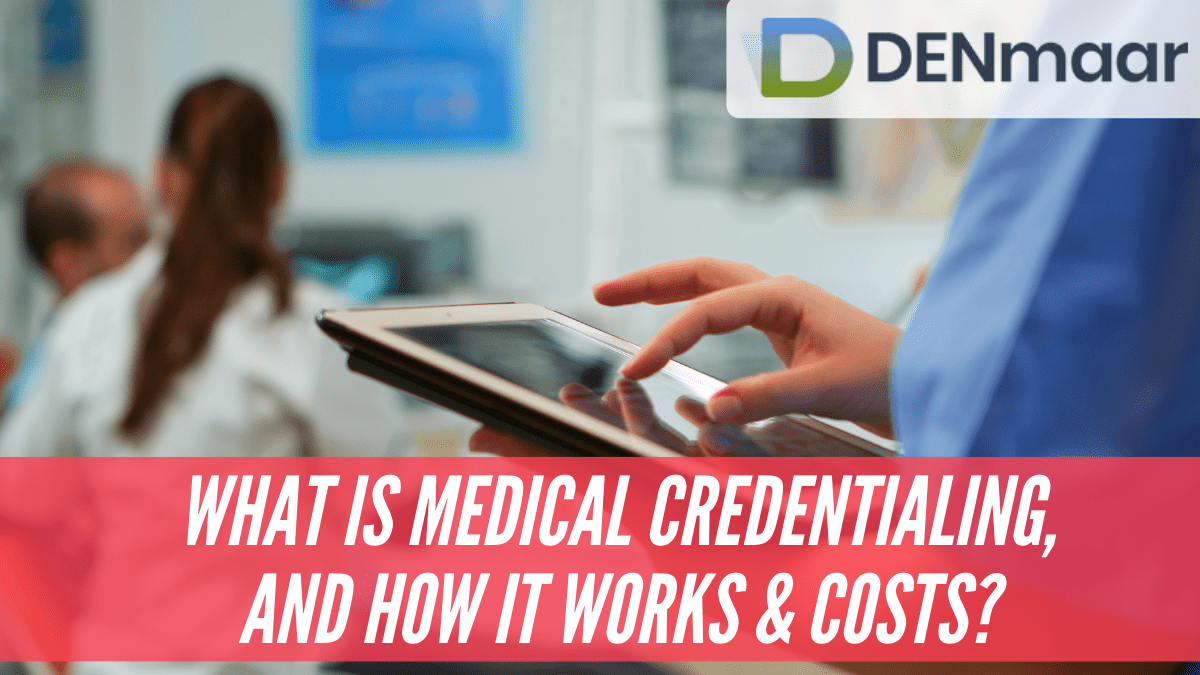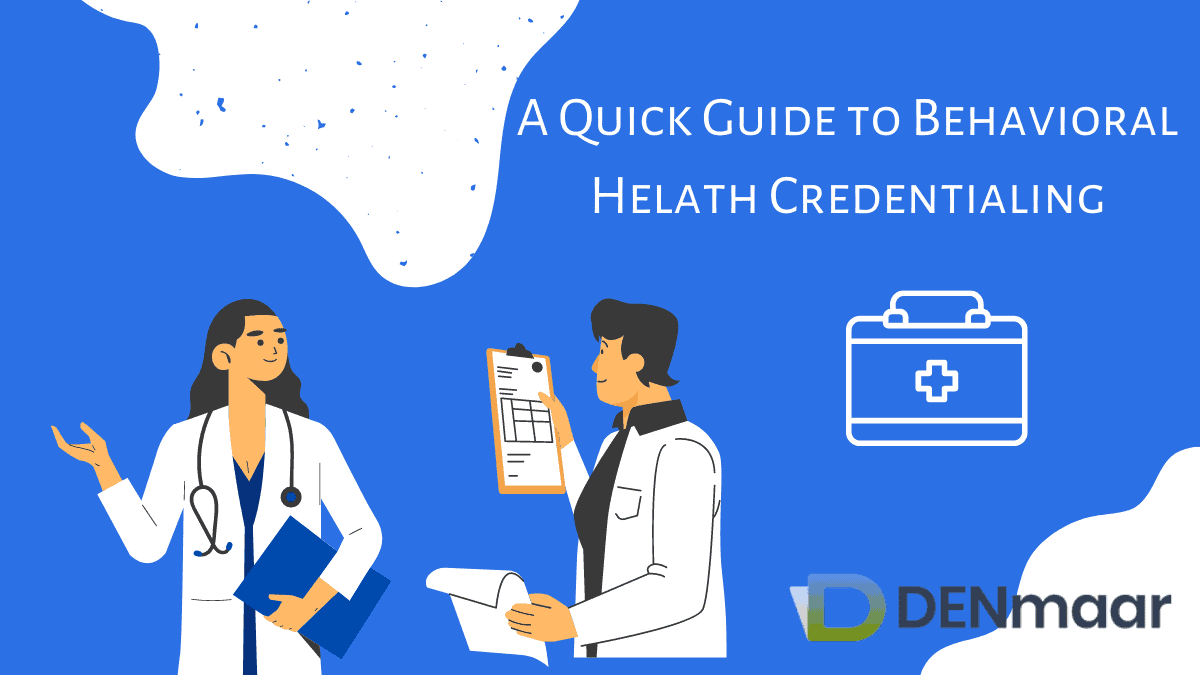
What is Medical Credentialing, and How it Works & Costs?
Medical credentialing is a complex concept to understand. So it is only natural for one to have several questions about it. In this article, we aim to answer some of the most frequently asked questions surrounding the topic, and in the process, help you understand this complicated but fundamental aspect of our medical world even better.
Table of Contents
- 1. How Exactly Does Medical Credentialing Work?
- 1.1. What are the Benefits of Medical Credentialing?
- 1.2. Can a Provider Allowed to Work During the Credentialing Process?
- 1.3. What Kind of Facilities Need Credentialing?
- 1.4. What is the NCQA?
- 1.5. What is TJC?
- 1.6. What is CMS?
- 1.7. What Does Primary Source Verification Mean?
- 1.8. What is the Credentialing Committee?
- 1.9. How Long Does a Medical Credentialing Process Last?
- 1.10. How much will Medical Credentialing Cost You?
- 2. What Do I Look for in a Credentialing Service Provider?
So without much further ado, let’s get started.
How Exactly Does Medical Credentialing Work?
Medical credentialing is a process undertaken with the main purpose of maintaining high standards of quality expected from the medical industry. The process usually entails the verification of a healthcare provider’s competency with regards to their educational qualifications, work history, certifications, etc.
A credentialing authority will contact a provider’s university, certification board and licensing agency to verify whether he or she is capable of providing healthcare. Credentialing is considered to be imperative for all types of providers who engage in providing medical assistance to patients. It needs to be conducted at regular intervals to make sure a healthcare organization or provider is complying with regulatory standards and policies set by bodies like the Centers of Medicare and Medicaid Services, The Joint Commission, National Committee for Quality Assurance, etc.
What are the Benefits of Medical Credentialing?
Medical credentialing has a plethora of benefits in store for all parties involved with the process. Credentialing provides hospital and clinics with the assurance that their hired staff will offer their services at the level of standards expected of them. Insurance companies can keep their costs down by making sure only competent medical professionals pass the credentialing process.
Practitioners also benefits immensely from credentialing as they can expand their services to more patients with access to different types of health insurance. However, patients stand to benefit the most out of credentialing. They can rest assured on receiving the highest quality of care from the most qualified providers.
Can a Provider Allowed to Work During the Credentialing Process?
It is recommended for a healthcare provider to halt their services until the entire credentialing process is complete. This guarantees that all patients receive quality care from only those providers who have verified qualification to offer their services. A healthcare organization is putting itself in unnecessary risk by letting non-credentialed individuals work for them.
That being said, there are a few exceptions to the rule. Medical students, for instance, don’t need credentialing as long as their duties to do not cross the scope of their educational program. They typically don’t need to undergo credentialing as they are working under the strict supervision of superior credentialed providers.
What Kind of Facilities Need Credentialing?
Aside from practitioners, facilities that engage in the act of providing healthcare need credentialing as well. As such, the following services and facilities need to undertake the process to show they comply with the expected standards of care and competence.
- • Dialysis
- • Ambulance
- • Home Health Services
- • Hospice Care
- • Durable Medical Equipment
- • Independent Diagnostic Testing
- • IV Home Infusion Therapy
- • Laboratories
- • Prosthetics
- • Orthotics
- • Lithotripsy
- • Urgent Care Centers
- • Radiology
What is the NCQA?
The NCQA, aka The National Commission for Quality Assurance is an independent non-profit organization. Their job is to evaluate the quality of healthcare provided by medical practices and issues credentials based on their findings. The organizations that go to NCQA for credentialing include managed behavioral healthcare organizations, preferred provider organizations, credentials verification organizations, etc.
What is TJC?
The TJC, or the Joint Commission, is an organization tasked with maintaining high standards of healthcare in the United States of America. They conduct surveys that aim to verify the standards of healthcare provided by the hospitals in USA. Organizations like hospitals proactively answer to accrediting surveys hosted by the TJC every three years.
What is CMS?
The CMS, or The Centers for Medicare and Medicaid Services is a federal agency that serves under the United Stated Department Health and Human Services. It is responsible for performing a number of functions, which include evaluating quality standards of clinical labs and facilities that have been offering care to patients for a long time. The CMS works closely with state governments to administer and monitor Children’s Health Insurance Program, Medicaid, etc.
What Does Primary Source Verification Mean?
Primary Source Verification basically means that a credentialing authority will directly verify a provider or organization’s credentials from the source of that credential itself. For instance, a CVO will directly contact the university to verify a practitioners education qualifications. This is usually done to avoid fraud. As such, documents from third-party sources are not entertained.
What is the Credentialing Committee?
Credentialing committee is responsible for overseeing the entire application review process. They have to make sure that the applicants meet the desired set of quality standards. This committee will include doctors with varying specialties, a liaison with the CVO and a chairperson. If you meet the basic requirements of credentialing, you can appeal a committee’s decision. You will receive all the information needed if it is deemed that you have the right to appeal.
How Long Does a Medical Credentialing Process Last?
The medical credentialing process can be excruciatingly long. It can take anywhere from days to weeks, and sometimes months. Typically, you can expect the credentialing process to take as long as 90 to 120 days. As such, we recommend starting your application process at least 3 months before you begin your duties as a healthcare provider.
How much will Medical Credentialing Cost You?
The costs for medical credentialing will vary from CVO to CVO, organization to organization and specialty to specialty. Generally speaking, you can expect to pay around three to four hundred dollars for your application fee alone. You can also anticipate partial reimbursements after your credentialing process has been completed successfully.
You will also incur costs on periodic and re-credentialing as well. However, you can expect to get this done at a discounted rate.
What Do I Look for in a Credentialing Service Provider?
Experience and a good reputation are arguably two of the most prominent factors you must consider when looking for a credentialing service provider. Such service providers are usually home to credentialing specialists who possess the resources, insight and experience needed to handle the entire credentialing and re-credentialing process from start to finish in a quick, efficient and hassle-free manner.
You will find the above qualities demonstrated perfectly by the credentialing specialists’ right here at DENmaar. With years of industry experience, we’ve helped many providers and facilities get credentialed and can do the same for you.
Reach out to us at 844-727-3627 to learn more about our services.
Related Posts
5 Credentialing Issues in Healthcare & Their Resolutions
Credentialing issues in healthcare are extremely common. In fact, the process...
A Quick Guide to Behavioral Health Practitioner Credentialing
The following article will tell everything you need to know about successfully...
What is Medical Credentialing, and How it Works & Costs?
Medical credentialing is a complex concept to understand. So it is only natural...
Nurse Practitioner Credentialing: Why is It Vital for Nurses and Healthcare Organizations?
Credentialing is usually considered to be a process only meant for physicians....



